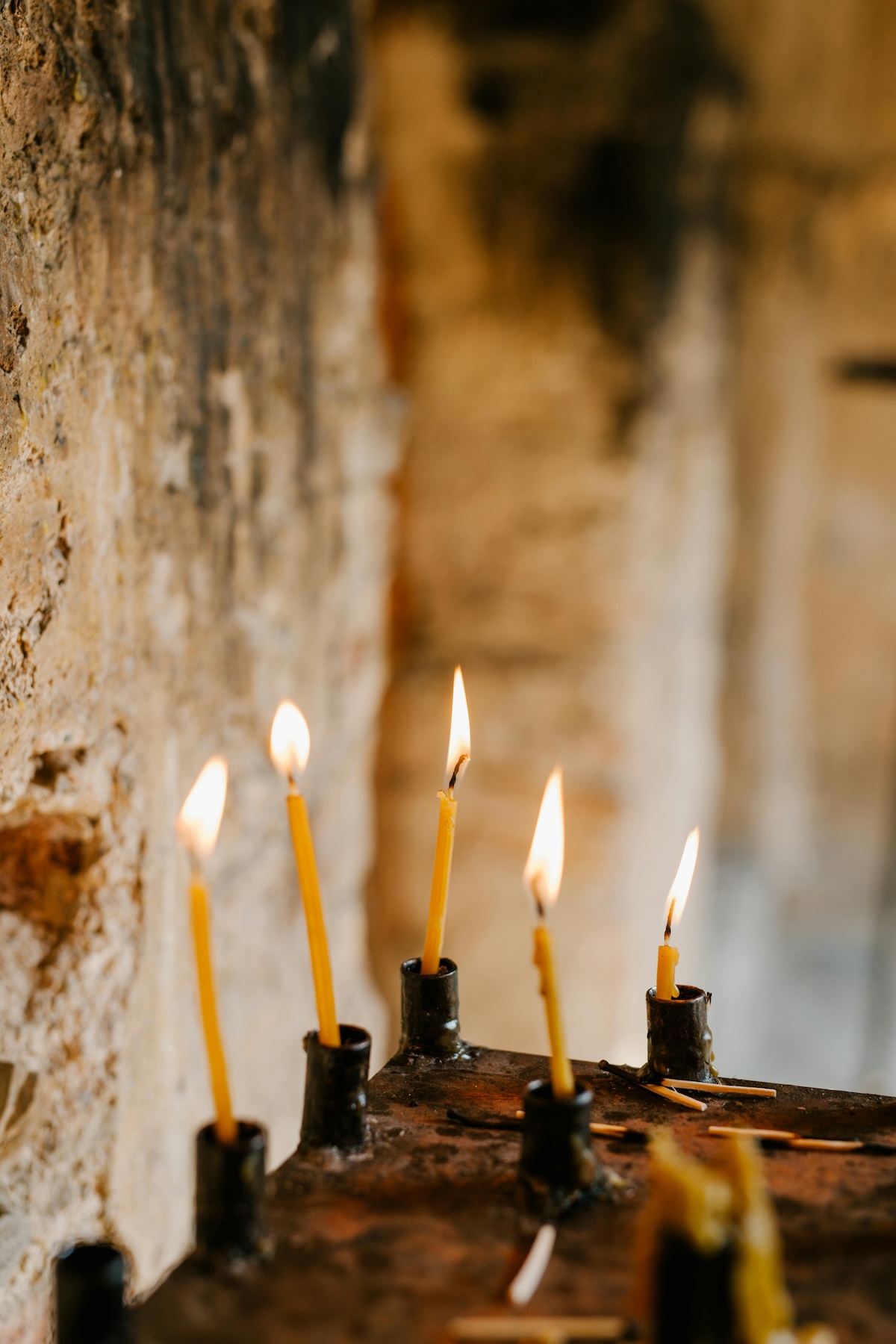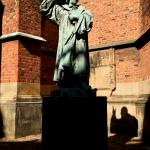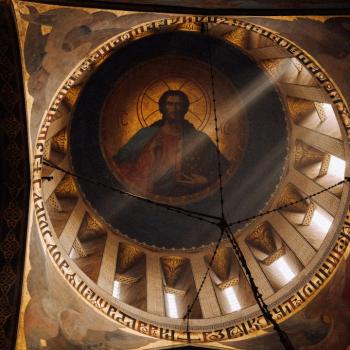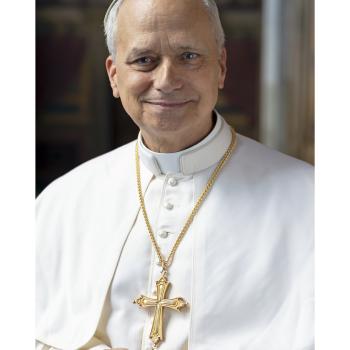That a monk wants to teach us to love clashes with our modern sensitivities. But when the monk was formerly a young nobleman famous for jokes, songs, and parties, our perspective shifts. The young man was so popular that when he decided to knock at the door of the monastery requesting admittance, 30 young noblemen went with him. St. Bernard of Clairvaux is one of the intriguing men to have lived in the 11th century. He grew up in a pious noble family in France and studied everything from dialectics to Sacred Scripture. He preached devotion to Mary frequently and his writings still ring true and beautiful today. After his mother’s death, he decided to join a Cistercian abbey and lead a life of prayer and contemplation. To this day, his writings enhance our understanding and appreciation of today’s Feast of the Ascension.
To complete your seamless robe, and so to complete our faith, you ascended through the air into the heavens before the very eyes of the apostles. In this way you showed that you are the Lord of all and are the fulfillment of all creation. Thus, from that moment every human and every living creature should bow at your name. And, in the eyes of faith, we can see that all creation proclaims your greatness (St. Bernard of Clairvaux).
Ascension of the Lord
The Ascension of the Lord makes it clear that we are called to enter heaven completely: body and soul, just as Jesus did.
The Lord Jesus, after he spoke to them, was taken up into heaven and took his seat at the right hand of God. (Mk. 16:19)
Often, we can fall into the trap of treating the spiritual life like an escape from “the real world.” This is not how Bernard of Clairvaux lived. I think Bernard’s view of the feast of the Ascension helps us to understand that the spiritual life is the real world, and that this world and its pleasures are passing away (cf. 1 Jn. 2:17). Throughout history, men and women religious have given witness to the reality of the spiritual world. In a practical and radical way, they show that we should live for God first, and then take care of our earthly matters as needed.
Bernard helped to make this very practical through his reflection in The Love of God. Here, he speaks about four degrees of loving God that we would do well to study and to integrate into our own spiritual lives.
First Degree of Love: Loving Yourself for Your Own Sake (Selfishness)
In the first degree of love, we love ourselves for our own sake. This is essentially selfishness, which is partly natural. We know that it is anti-natural to despise ourselves, as Paul writes to the Ephesians: “no one hates his own flesh but rather nourishes and cherishes it” (Eph. 5:29). St. Bernard exhorts us to
restrain our own self-love if we would avoid becoming transgressors. You can be as indulgent as you like about yourself, provided you shows the same indulgence with your neighbors. (St. Bernard of Clairvaux).
How often does our selfishness get us into trouble? We like to lie to ourselves that we are kind and good to everybody, but if we are honest, we will recognize how frequently we sin against others and harm them with our own selfishness.
Second Degree of Love: Loving God for Your Own Blessing (Dependence on God)
In the second degree of love, we love God not for his own sake, but because we want to be blessed. We begin to learn dependence on God in this degree of love. This is similar to imperfect contrition as when we go to confession only because “we fear the loss of Heaven and dread the pains of Hell.” This comes out in one of the formulas of the act of contrition. It is at least on the right road, but is still somewhat selfish.

Third Degree of Love: Loving God for His Own Sake (Intimacy with God)
Soon after reaching the second degree of love, we should begin to aspire towards the third degree. This third degree consists of intimacy with God. In this degree of love, we love God for his own sake. Regarding confession of sin, now we begin to feel truly sorry for what we have done because it offends someone we love, not just because we will have to eventually pay the price of the sins we have committed. We can easily liken this to our experiences of being punished as a small child.
I remember once, I was playing around in my mother’s bedroom, and I broke a shelf where she had some of her precious keepsakes. All of the keepsakes shattered on the floor. I don’t even remember being punished, but I felt terrible about destroying something nice of hers. This is like the third degree of love of God. We begin to feel sorry for our sins because we don’t want to offend him.
Fourth Degree of Love: Self-love for God’s Sake (Being United in God’s Love)
The fourth degree of love allows us to love ourselves for God’s sake. This is to be united with him in love. We begin to see ourselves for who we truly are and this leads us to give glory to God. This is not falling into spiritual pride and thinking ourselves better than others. Rather, we begin to recognize the glory of God’s love and desire nothing more than to be with him.
To reach this condition is to be godly. For as a drop of water disappears in a barrel of wine, taking the taste and color of wine, so is this state. Or like a bar of iron that is heated and red-hot and becomes like the flame itself, so is this return to divine love. Or just as air becomes so radiant with the light of the sun that it appears to be the very sunlight itself, so it is with the saints whose human love is transmuted by the will of God Himself (St. Bernard of Clairvaux).
The Feast of the Ascension reminds us of the totality of the resurrection. It is not merely that Christ rises from the dead, but we are all called to rise from the dead and be united with him, body and soul, in heaven forever. This is great news; if we are called to be in heaven, we should work already during this life to fall in love with God. For this reason, it can be helpful to reflect on St. Bernard’s four degrees of love and integrate them into our lives. Let us love God for his own sake and make him the center of our existence.
What do you think? Can the love of God satisfy us here on earth? Comment below.
Subscribe to the newsletter to never miss an article.













